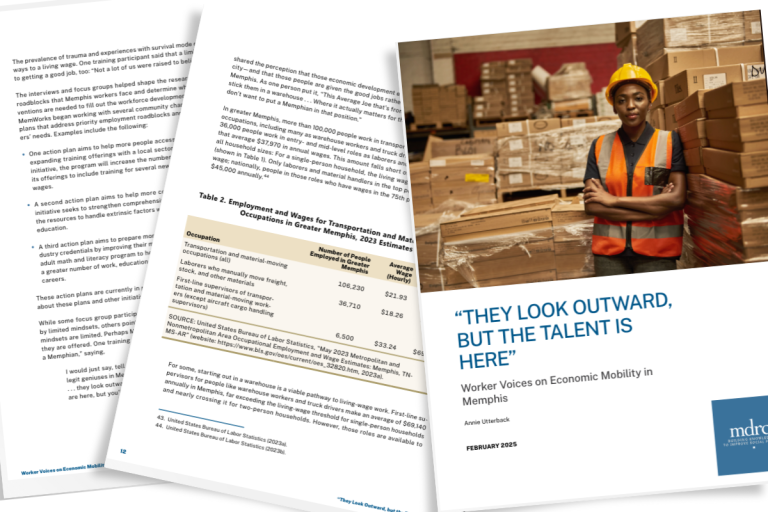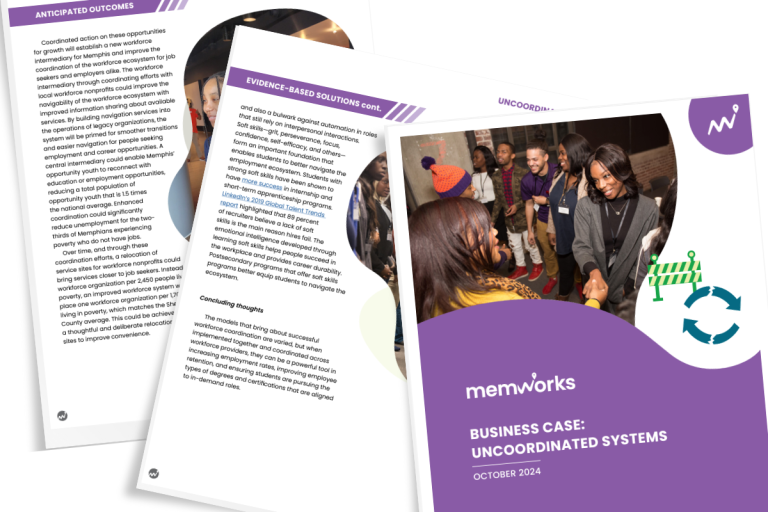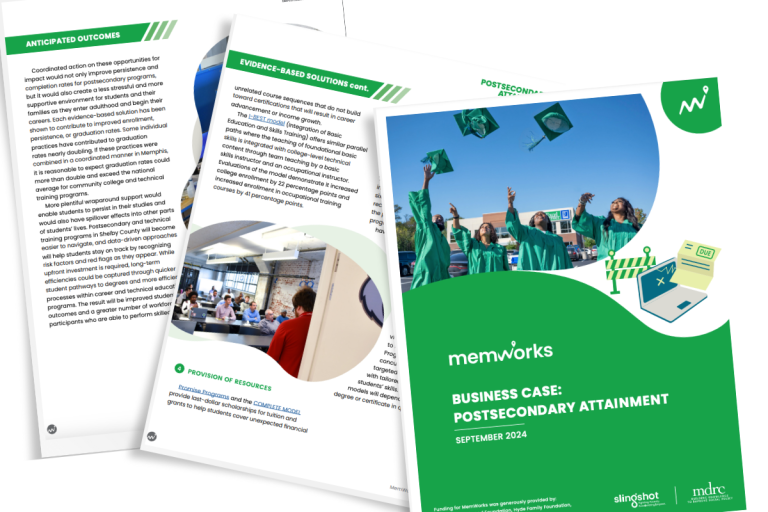Insufficient math and literacy skills impede entry to and success in technical training.
MemWorks has helped us identify the root causes that are impeding employment pathways for Memphians experiencing poverty. An accurate understanding of these roadblocks is absolutely essential, but without knowing how to effectively overcome these roadblocks we are still unable to enable pathways to living-wage jobs.
We are excited to share evidence-based interventions that can help our community overcome these roadblocks. This email shares a roadmap for how we can provide adults the necessary academic remediation to successfully pursue career & technical education and career paths to living-wage employment.
100,000 Memphians cannot read this.

An estimated 100,000 Memphians experiencing poverty need academic remediation to access and thrive in postsecondary programs due to insufficient literacy and numeracy skills. The lack of literacy as an adult is absolutely damning to career progression. Despite this massive need, there are only enough service providers in Memphis to support a few thousand adults per year.
Evidence-based solutions exist for academic remediation.
Four evidence-based models stood out as we analyzed successful interventions that are in use to help adults catch up and build basic reading and math skills:
- Multiple Measures Assessments aim to place more postsecondary students in on-target or college-level courses, rather than in remedial courses, by varying how programs assess standardized test scores in reading and math. Students who need remedial coursework are appropriately placed while students who are ready for college-level classes are not unnecessarily held back.
- Co-requisite models help students avoid the delay of earning college credit because of mandatory prerequisite remedial courses. The model simultaneously enrolls students in college-level/on-target courses and additional support for remedial learning.
- Pathway programs accelerate student progress toward completion by allowing students to take remedial courses closely aligned to their area of study. Programs integrate student learning supports and build evidence-based curriculum and pedagogy rooted in relevant career-track content and remedial support.
- Bridge programs are postsecondary programs offered to students before they start their first semester of postsecondary education. Bridge programs are designed to address reading and math remediation challenges prior to the official start of a postsecondary program.
Case examples: Academic remediation in action.

The Accelerated Learning Program (ALP) developed at the Community College Baltimore County enables students placed in remedial writing/reading to enroll in college-level English with a supportive co-requisite course, exhibiting an effective use of the Co-requisite model.

University of Texas’ Dana Center Mathematics Pathways helps postsecondary institutions in more than 30 states implement pathways programs and co-requisite models with a focus on math attainment. The program has had particular success in East Texas where it developed a co-requisite program offering statistics, quantitative literacy, and a path to calculus courses tailored to specific career interests.

REACH Literacy in South Dakota boosts adult literacy by partnering with employers to enhance employees’ reading skills while at work through workday academic tutors, tailored curricula, and job-related learning.
A path forward for Memphis
Several workforce programs and postsecondary institutions in Memphis offer programs in math and literacy remediation. The Goodwill Excel Center, HopeWorks, and Southwest Tennessee Community College, among others, offer forms of remedial support that parallel some of the evidence-backed models described above.
There are several opportunities to improve adult academic remediation support in Memphis:
- Embedding co-requisite models in career and technical training programs would support students directly matriculating to a technical school
- Establishing additional formal adult literacy and numeracy programs would help prepare students for their next educational steps
- Offering adult math and literacy programming through government services (e.g., Temporary Assistance for Needy Families (TANF)) could positively impact entry into training and work
Together we can help job-seeking Memphians experiencing poverty improve their baseline math and reading skills so they can pursue pathways to living-wage employment.





